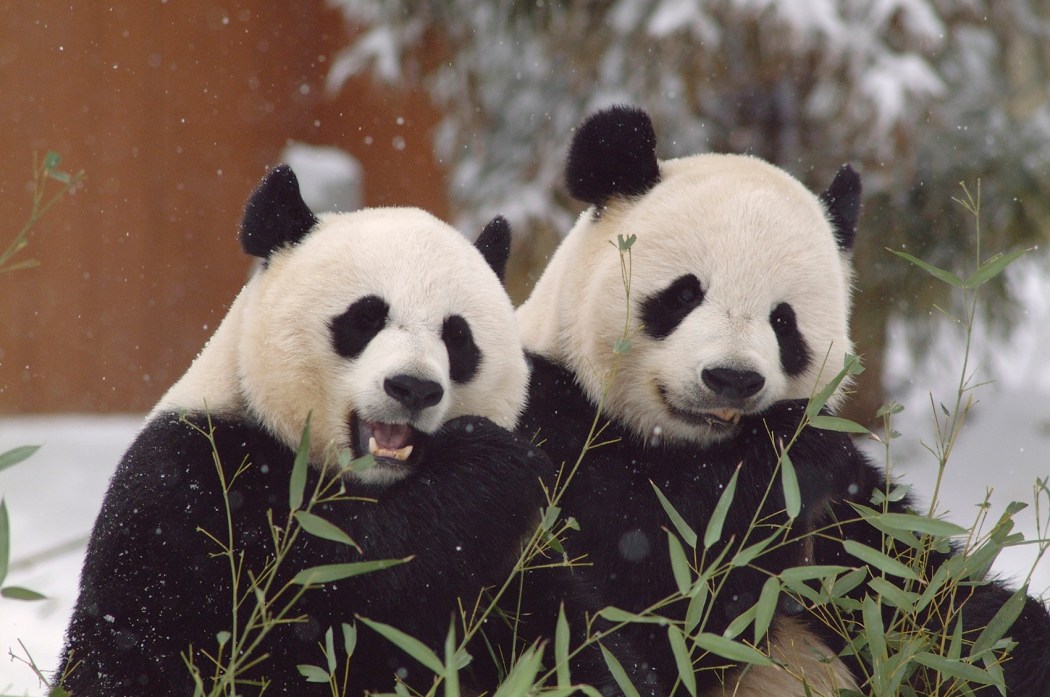By Anuj Chopra with Tommy Wang
Chomping peacefully on a fruitsicle cake in her grassy Washington zoo enclosure Mei Xiang is blissfully unaware that she and a handful of other cute pandas are at the centre of a ferocious misinformation campaign driving anti-US sentiment in China.

Evidence-free claims that pandas have been abused at US zoos have ricocheted across Chinese social media in recent months, fanning anti-American perceptions amid already fraught ties between Washington and Beijing.
The falsehoods, which researchers say were amplified by clout-chasing influencers, have cast a shadow on Beijing’s “panda diplomacy,” the decades-old practice of gifting or loaning the bears to other countries as a token of friendship.
In multiple posts on Chinese platforms including Weibo and Douyin, a video fuelled the narrative that Mei Xiang was abused by the Smithsonian’s National Zoo in Washington DC and made to undergo a painful artificial insemination procedure dozens of times.
The posts triggered impassioned pleas for the panda to be rescued and returned to China, with the hashtag “Save Mei Xiang” viewed on Weibo hundreds of millions of times.
But according to AFP factcheckers, the video actually shows a different male panda in Singapore undergoing a health check-up in 2015, a story widely reported by local media at the time.
In other posts on the same platforms, an image purported to show Mei Xiang’s mate, Tian Tian, sedated and restrained during an examination.
But the photo actually depicts a panda in China’s Fujian province undergoing an examination in 2005, according to the Atlantic Council’s Digital Forensic Research Lab (DFRLab).
Rooted in nationalism
“Amid increased competition between the US and China, the deterioration of US-China relations is now echoed in Chinese narratives” alleging the mistreatment of pandas, the DFRLab said in a report last month.

“The narratives are deeply rooted in Chinese nationalism and mistrust of the West and have been amplified across Chinese media and social media.”
Last week, AFP journalists in Washington saw Mei Xiang and Tian Tian, seemingly healthy and devouring frozen treats in their enclosures as the zoo hosted a nine-day “Panda Palooza” celebration with panda-themed refreshments, film screenings and music concerts.
The zoo, which declined to comment on the online misinformation, held the party to bid farewell to the bears and their three-year-old cub Xiao Qi Ji, who will be returning to China in December as its contract with the Chinese government expires.
Another panda named Ya Ya was returned to China by the Memphis zoo in April after its loan agreement ended. This followed uproar from Chinese activists and social media users who accused the zoo of abusing her.

Many also blamed the zoo for the death of Ya Ya’s mate, Le Le, with accusations swirling online — despite no evidence — that zookeepers had stabbed the bear and sold his eyeball.
The zoo vigorously rejected what it said was “misinformation.” The Chinese Association of Zoological Gardens also backed the zookeepers, saying in a joint statement that the bears at the Memphis zoo had received “excellent care.”
But that did little to quell the nationalist outrage.
Fan those flames
China’s state-linked Global Times, the mouthpiece of the ruling Communist Party, linked the controversy over Ya Ya to US-China geopolitical tensions.

“If this had not happened during a period when Washington is intensifying its containment and suppression of China, this matter would not have caused such a stir,” it said in an editorial in March.
Amid tense relations between the two biggest economies over issues such as Taiwan, US observers say the Chinese government appears keen to condone and encourage anti-American sentiment.
“Misinformation around panda treatment is an example of a convenient way to fan those flames,” Isaac Stone Fish, chief executive of China-focused data company Strategy Risks, told AFP.
The misinformation not only bred mistrust about the United States in China but also sparked fervent calls to suspend the panda exchange, potentially closing what DFRLab called one of the few avenues of cooperation between the two countries.
Aside from Washington and Memphis, the zoos in San Diego and Atlanta have either returned or are set to return their pandas to China by next year. Without China’s extension of the loan agreement, US zoos face the prospect of having no pandas for the first time in 50 years.
“This (misinformation) campaign is particularly sad given the ways in which ‘panda diplomacy’ previously played such a crucial role in helping to foster positive relations between China and the West,” Darren Linvill, a professor at Clemson University, told AFP.
It is, he added, “an unfortunate sign of the current state of relations between powers.”
Support HKFP | Policies & Ethics | Error/typo? | Contact Us | Newsletter | Transparency & Annual Report | Apps
Help safeguard press freedom & keep HKFP free for all readers by supporting our team

LATEST FROM HKFP
HKFP has an impartial stance, transparent funding, and balanced coverage guided by an Ethics Code and Corrections Policy.
Support press freedom & help us surpass 1,000 monthly Patrons: 100% independent, governed by an ethics code & not-for-profit.








